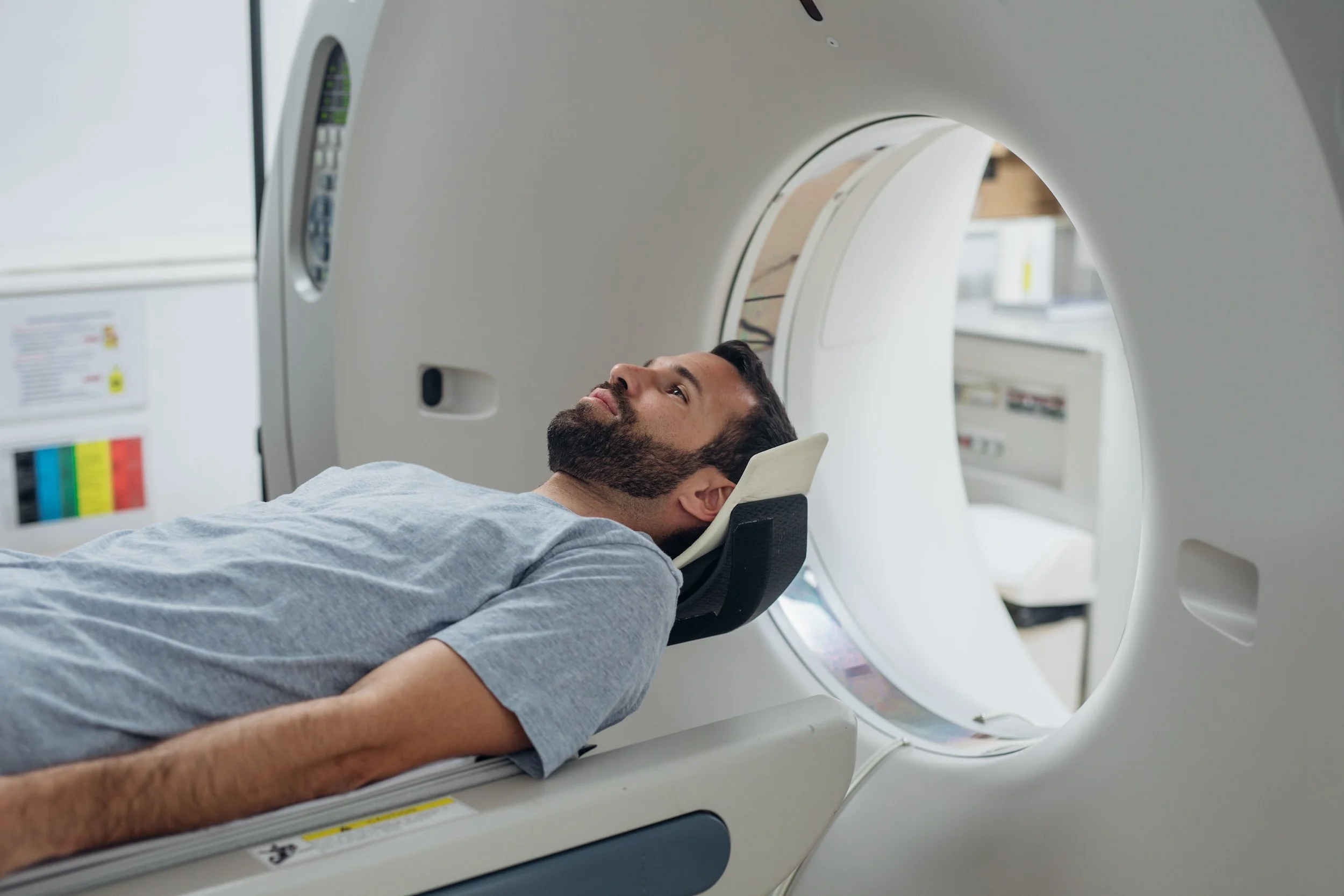
We understand you may have questions and concerns when it comes to any diagnostic imaging we offer at WELL Health Medical & Longevity Centre. Any medical test you are unfamiliar with can make you uneasy and we’re here to ensure you’re comfortable and know what to expect during your CT Scan.
Here, some often-asked questions about getting a CT scan, with answers from our team of medical professionals.
What is a CT scan?
A CT scan is an imaging test whereby a computer puts together a series of x-ray, detailed 2D images of organs, tissues, bones and blood vessels in the body. These cross-sectional images are also called slices. We can also do 3D reformats with them done in different planes, like top to bottom, and left to right. This way, we get the whole picture.
What do the initials CT stand for?
Computed Tomography, and the same test is sometimes called a CAT scan, which stands for computerized axial tomography.
Why get a CT scan instead of an x-ray?
CT scan images show more detail than x-rays provide, and that gives us more information about you. Even though x-rays are in the highest resolution and highest detail, they are only one dimension, or one slice, so to speak. We’d have to do multiple x-rays on different planes to get the same detail as a CT scan. It would take about 100 x-ray slices to capture what a CT scan does!
If we’re scanning a tumour, we want to see its exact position in your body, front to back, top to bottom, and left to right. A CT Scan can help us to get all those details.
When multidimensional imaging isn’t required, an x-ray works very well. For instance, fluid in the lungs will show up in an X-ray, so a CT scan is not necessary for that diagnosis.
What exactly do CT scans show in the body?
CT scans can locate where cancer, heart disease, lung nodules and liver masses have developed initially, plus track their progression and how they are responding to treatment afterward. Tumours, blood infection or clots appear in CT scans as well. CT scans are the gold standard for getting the complete picture.
What should I do to prepare for my CT Scan?
The instructions may vary, depending upon what part of your body is being scanned. We will ensure you have instructions once we receive the protocols from the radiologist and we book your appointment.
All metal objects like jewelry, removable dental work and glasses need to be removed. You may be asked not to eat or drink anything for a certain number of minutes or hours prior, or just to have tracked what you ate and drank during that time. In some situations, we may ask you to take a laxative or have an enema prior. Again, we will ensure you have clear, specific instructions prior to your appointment.
How long does a CT scan take?
We ask you to allow for 30 to 60 minutes usually, but it’s often much quicker. The amount of time required can vary depending upon the type of scan you’re receiving.
What are the steps of the CT Scan?
First, we ask you to change into a gown, and then you are asked to lie on a narrow table, where straps and pillows are used to help you stay in the correct position and hold still. Holding still is important so we can get accurate images. The table slides into the CT scanner, which is a large rectangular unit with a hole in its centre, like a huge doughnut. That’s where we take the images of your body. Just close your eyes and relax – there is no pain with a CT scan. It will be over before you know it!
Will I hear anything during my CT Scan?
You will likely hear some clicking or whirring noises as the camera moves around in the scanner taking all the images. Think of it like a quiet hybrid engine humming.
What if I get claustrophic during my CT Scan?
A CT Scan is open at both ends, so it’s rather like gliding through a doughnut rather than being in a tunnel, so most people find it easy.
Are there any side effects from a CT Scan?
CT scans use very low levels of ionizing radiation. It’s comparable to the radiation experienced during a transatlantic flight, so it’s nothing to be concerned about.
What is contrast material for a CT Scan? Will I need it?
For some CT scans we use contrast material. It’s a special dye that helps us to see your blood vessels, intestines and other organs more easily. Sometimes you may be required to get a blood test prior to your CT Scan when we need to use contrast material. The dye is colourless and odourless, and will clear your body within a few hours.
Do I need a requisition form to get a CT Scan at WELL Health in Vancouver?
Yes. In British Columbia, all Diagnostic Imaging modalities require a requisition form from your physician.
When will I receive the results of my CT Scan?
Results are typically available between 3 – 5 business days. Your physician will review and discuss the findings with you.
Have questions about your CT Scan at WELL Health Medical & Longevity Centre in Vancouver?

